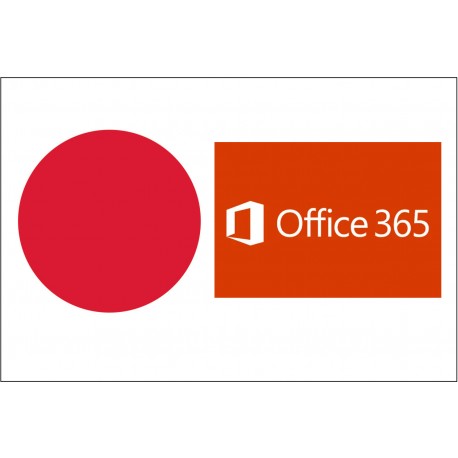How Middle Managers Drive Productivity And Improve Employee Engagement

Table of Contents
The Role of Middle Managers in Fostering a Productive Work Environment
Middle managers are the linchpin between senior leadership and frontline employees. Their ability to create a productive work environment directly impacts team performance and overall company success. This involves several key responsibilities:
Effective Communication and Feedback
Clear, consistent, and timely communication forms the bedrock of a productive team. Middle managers must master various communication methods to ensure everyone is informed and aligned.
- One-on-one meetings: These provide a space for personalized feedback, addressing individual concerns, and tracking progress on projects.
- Team meetings: These facilitate collaborative problem-solving, brainstorming sessions, and the dissemination of important updates.
- Written feedback: Formal performance reviews and regular written updates provide documentation and clarity, minimizing miscommunication.
Active listening is crucial. Middle managers must not only deliver information effectively but also actively seek input from their team members. Constructive criticism, delivered with empathy and a focus on improvement, is essential for growth.
- Effective communication strategies: Use clear and concise language, avoid jargon, and ensure messages are easily understood.
- Importance of regular check-ins: Schedule brief, regular check-ins to monitor progress, address concerns, and provide support.
Delegation and Empowerment
Effective delegation is a cornerstone of productivity. Middle managers must skillfully distribute tasks, considering individual strengths and skill sets. This not only lightens their workload but also empowers employees, fostering a sense of ownership and responsibility.
- Benefits of delegation: Frees up managers' time for strategic tasks, develops employee skills, and increases efficiency.
- Tips for effective empowerment: Clearly define roles and responsibilities, provide necessary resources and support, and trust employees to perform their tasks.
Setting Clear Goals and Expectations
SMART goals—Specific, Measurable, Achievable, Relevant, and Time-bound—are critical for directing individual and team efforts. Middle managers must ensure that individual goals are aligned with team and organizational objectives, creating a cohesive and purposeful work environment.
- Benefits of SMART goals: Improved focus, increased accountability, and enhanced performance measurement.
- Techniques for effective goal setting: Collaboratively set goals with team members, regularly review progress, and provide timely adjustments as needed. Using project management tools can also significantly improve goal setting and tracking.
Middle Managers as Champions of Employee Engagement
Beyond productivity, middle managers play a vital role in fostering employee engagement, a key driver of retention and organizational success.
Building Strong Team Relationships
A positive and supportive team environment is crucial for high engagement. Middle managers can nurture this by:
- Ideas for team building: Organize social events, team lunches, or collaborative projects to foster camaraderie.
- Strategies for conflict resolution: Implement clear conflict resolution processes and actively mediate disagreements.
- Recognizing achievements: Regularly acknowledge and celebrate individual and team successes, both big and small.
Promoting Work-Life Balance
Supporting employee well-being is paramount. Middle managers should promote a healthy work-life balance through:
- Examples of flexible work arrangements: Consider flexible hours, remote work options, or compressed workweeks.
- Strategies for promoting work-life balance: Encourage employees to take breaks, use their vacation time, and disconnect after work hours.
Providing Opportunities for Growth and Development
Investing in employee growth is a powerful engagement driver. Middle managers can facilitate this by:
- Examples of training programs: Provide opportunities for skill development, leadership training, and professional certifications.
- Benefits of mentoring: Pair experienced employees with newer ones for guidance and support.
- Career development strategies: Help employees create career development plans and provide opportunities for advancement.
Conclusion
In conclusion, middle managers are vital in driving productivity and improving employee engagement. Their ability to foster effective communication, delegate effectively, set clear goals, build strong teams, and champion employee well-being directly impacts organizational success. By actively implementing these strategies, you can become a highly effective middle manager who drives productivity and improves employee engagement within your organization. Start building a more engaged and productive team today! Boost employee engagement and improve team productivity by adopting these best practices.

Featured Posts
-
 Watch Maneskins Damiano Davids Jimmy Kimmel Live Performance Via Radio 94 5
May 18, 2025
Watch Maneskins Damiano Davids Jimmy Kimmel Live Performance Via Radio 94 5
May 18, 2025 -
 Eurovision 2025 Uk Entry Announced Amidst Most Controversial Acts
May 18, 2025
Eurovision 2025 Uk Entry Announced Amidst Most Controversial Acts
May 18, 2025 -
 Maneskins Damiano David Announces Solo Career
May 18, 2025
Maneskins Damiano David Announces Solo Career
May 18, 2025 -
 Living In Japans Metropolis An Expats Perspective
May 18, 2025
Living In Japans Metropolis An Expats Perspective
May 18, 2025 -
 Dutch Viewpoint Against Eu Countermeasures To Trumps Tariffs
May 18, 2025
Dutch Viewpoint Against Eu Countermeasures To Trumps Tariffs
May 18, 2025
Latest Posts
-
 Millions In Losses Office365 Executive Inbox Compromise Investigated
May 18, 2025
Millions In Losses Office365 Executive Inbox Compromise Investigated
May 18, 2025 -
 Inside The Office365 Heist Millions Stolen From Executive Inboxes
May 18, 2025
Inside The Office365 Heist Millions Stolen From Executive Inboxes
May 18, 2025 -
 Execs Office365 Accounts Breached Millions Made Feds Say
May 18, 2025
Execs Office365 Accounts Breached Millions Made Feds Say
May 18, 2025 -
 Mit Disavows Students Ai Research Paper
May 18, 2025
Mit Disavows Students Ai Research Paper
May 18, 2025 -
 Mit Retracts Support For Students Ai Research Paper
May 18, 2025
Mit Retracts Support For Students Ai Research Paper
May 18, 2025
